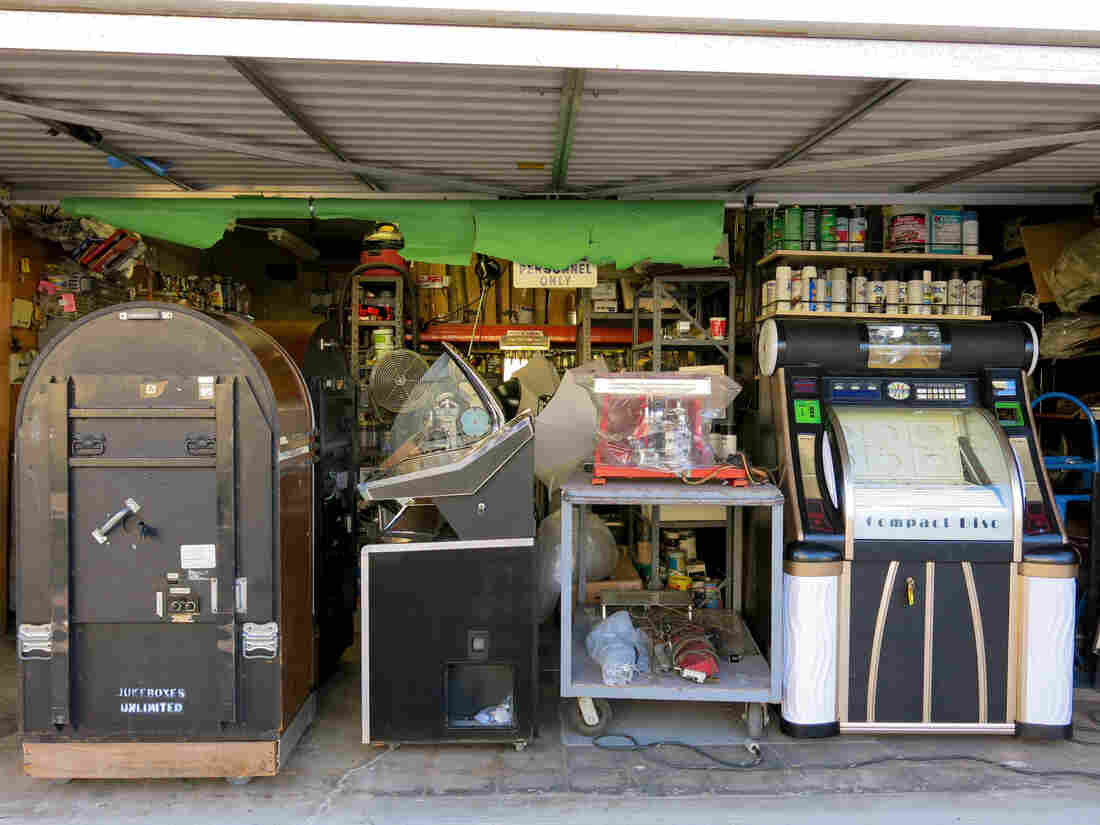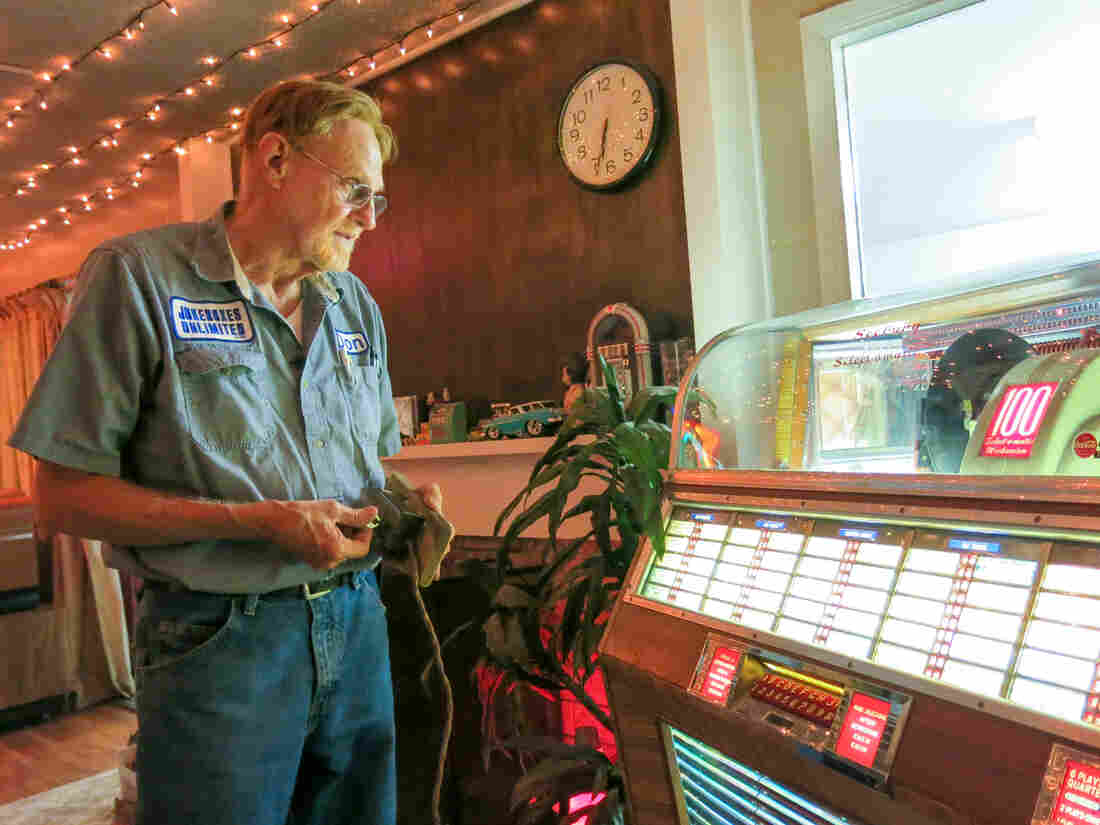By Carla Javier
Don Muller says his favorite jukebox is his 1948 Seeburg M100A, which he keeps in the corner of his living room. Carla Javier/NPR hide caption
itoggle caption Carla Javier/NPR
Don Muller has so many jukeboxes in his house, he doesn’t even know how many there are.
“I’ve never done this, walk around and count them,” Muller says, as he begins counting a row of jukeboxes tucked under a shelf of records.
He walks through the add-on garage, porch, living room and foyer. So far, he’s counted 62 jukeboxes, just in his own house — plus 40 in stock at his store, and plenty more in storage elsewhere.
“I’ve been telling people we have over a hundred,” Muller says. “Now, I know it’s even way more than that.”
Most of these jukeboxes are part of his company, Jukeboxes Unlimited, which he’s owned since 1971. He guts many of them to salvage their parts for assisting with repairs. Others, he fixes up to sell, while still others — the nicer looking ones, especially those that light up — he rents for parties and dances.
And some, Muller simply falls in love with and keeps for himself, like his 1948 Seeburg M100A. It sits in the corner of his living room at home.
“This machine is 100 percent original, every single aspect of it: the original cartridge, the original needle and original old 78 rpm records,” he says before playing Frankie Lymon’s “Goody Goody.”

Muller’s Jukeboxes Unlimited buys, repairs, rents and sells jukeboxes. He’s owned it since 1971. Carla Javier/NPR hide caption
itoggle caption Carla Javier/NPR
Back when he got his start in the 1970s in Los Angeles, there were a lot of guys like him in the jukebox business — but he set himself apart by selling to the stars. His famous clients include Steve Martin and Mick Fleetwood, and their notes and copies of checks still fill books and albums of his. He even used to go to the Playboy Mansion to repair a jukebox owned by Hugh Hefner.
Muller, now 72, has seen many of his competitors go away. The business has gotten less glamorous, but he keeps busy through his online store.
“I get so many emails. I get ’em from all over the world, and it’s the same thing. It’s like, ‘Can you tell me what gear goes with this gear?’ And you know, for me to just get back to them and say, ‘What jukebox are you even talking about?’ I just don’t have time,” he explains.
He drives 50 miles to visit one of those people who contacted him online — Aline DeGroote, in Anaheim, Calif. She has promised to give him some records if he can take her jukebox off her hands.
Muller doesn’t need more records. The add-on to his house is full of them; he has hundreds and thousands already. Many are duplicates, and most aren’t worth that much — but he’s excited about the records DeGroote is offering anyway.
“I don’t collect records: I amass records,” he explains as he drives to DeGroote’s home. “I don’t even know what we’re getting today. I’m sure I already have 20 copies of what she’s got, but it’s an addiction.”
DeGroote’s jukebox is from the early ’60s, and she’s had some trouble selling it. She tried Craigslist and thrift stores.
“When I first tried to sell the jukebox, people were like, ‘Well, does it play CDs?'” DeGroote says.

Muller keeps his collection of records in what he calls “banana boxes.” He says each box holds 400 45-rpm records. Carla Javier/NPR hide caption
itoggle caption Carla Javier/NPR
Her dad, who died five years ago, used to keep the jukebox in the pool room. She grew up listening to it. But now it’s broken, and she’s selling it to Muller for $75.
“I wanted it to go to someone who would appreciate it for what it is,” she explains. “It’s a jukebox that plays old music.”
When she pulls out seven boxes of records, Muller’s face lights up. There are at least 2,000. He sorts through the records, putting them in other boxes he brought himself — “banana boxes,” he calls them, since he picked them up at the local grocery store.
“A packed banana box is 400 records,” he explains. “Four hundred 45s in a banana box.”
As he sorts through them, he gets excited when he sees a record by The Fleetwoods. He begins to sing “Come Softly To Me,” and DeGroote joins in.
Muller says he could make decent money if he sold his collection of over 400,000 records. But he doesn’t plan to unless someone comes along with a huge offer, because the records aren’t for his business.
They’re for his collection. And eventually, he’ll give them to his son.
This entry passed through the Full-Text RSS service – if this is your content and you’re reading it on someone else’s site, please read the FAQ at fivefilters.org/content-only/faq.php#publishers.
